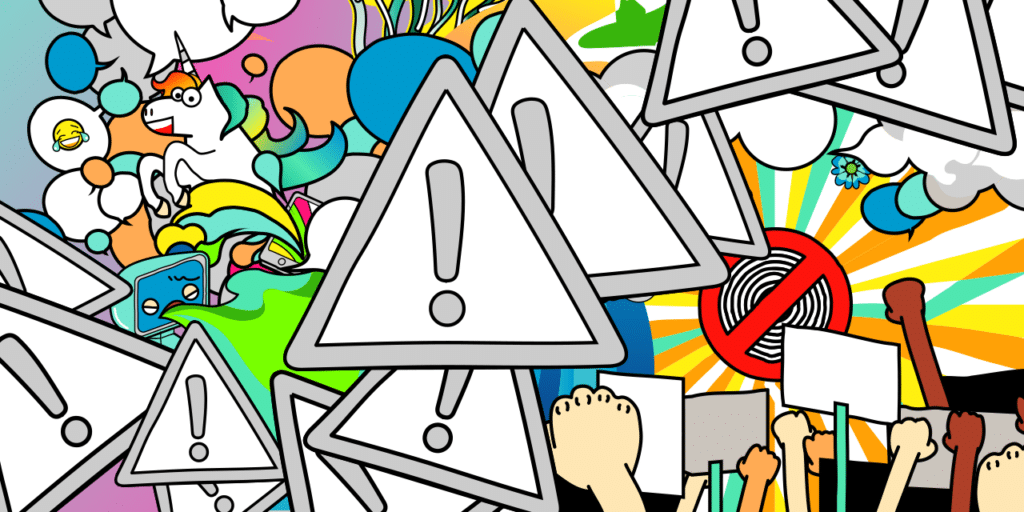On December 27, Russia’s censorship body, Roskomnadzor, unexpectedly blocked the website of a prominent human rights organization, OVD-Info. The judicial order granting the blocking stated that by reporting on the political repressions and arrests during protests, and by providing legal assistance to detained individuals, OVD-Info may create the “impression” of justification for “extremist activities.” Even more concerning, Roskomnadzor also sent notifications to social media, messaging, and search platforms — Telegram, Facebook, Instagram, Twitter, VKontakte, Yandex, and Google — asking them to block OVD-Info’s social media pages.
Blocking OVD-Info for advocating on behalf of individuals accused of terrorism or extremism laws would be equivalent to blocking the American Civil Liberties Union (ACLU), which defends individuals accused of similar crimes in the U.S. We call on tech companies to push back against these orders and show the strength of their commitment to human rights. If companies like Meta, Twitter, Google, and other platforms value our rights, they should demonstrate it by protecting the voices of human rights defenders, journalists, and activists.
Who is OVD-Info?
OVD-Info is an independent human rights media project, founded in December 2011 to respond to the mass arrests during protests that followed the disputed Russian parliamentary elections. Since then, it has become one of the most prominent Russian NGOs that provides legal advice and assistance to those persecuted for exercising their right to freedom of assembly and other fundamental human rights. It also publishes regular reports and news about political repression in Russia. In September 2021, an OVD-Info-led campaign against Russia’s Foreign Agent Law, which imposes draconian restrictions on organizations and individuals that receive foreign funding, resulted in the government slapping OVD-Info itself with the label.
Why social media companies should not de-platform OVD-Info
Major tech platforms, including Facebook, Twitter, Google, and even Telegram, acknowledge the need to comply with domestic laws and legal requests in the jurisdictions where they operate while adhering to internationally recognized human rights principles.
The right to freedom of expression, the right to freedom of assembly and association, and the right to fair trial are fundamental human rights protected by the Universal Declaration of Human Rights and the International Covenant on Civil and Political Rights (ICCPR), and enshrined in many national constitutions (including Russia’s). To silence organizations such as OVD-Info, which provide legal advice and representation to people exercising their right to protest, is plainly contrary to those international principles.
This is bigger than OVD-Info. Repressive laws are spreading globally
Access Now urges social media platforms to not become censorship tools for the Russian government by erasing OVD-Info from their platforms. However, our call goes beyond that.
In recent years, we have witnessed a staggering increase in the number of repressive laws that criminalize the rights to freedom of expression and assembly and association in countries around the world.
Kazakhstan, Belarus, Poland, Hungary, Egypt, Israel, Nicaragua, El Salvador, and Guatemala are among the countries that have passed or are considering passing “Foreign Agent” laws similar to Russia’s. They are aimed at repressing organizations and individuals who speak out against the government, based on allegations of receiving foreign funds. We are also seeing governments weaponize anti-extremism or terrorism laws against civil society in Belarus, Israel, Jordan, Saudi Arabia, and Turkey.
Many of these laws have resulted in liquidation of organizations against which they are aimed, erasing them legally, physically, and digitally. In December, Russia liquidated Memorial, one of the oldest and most respected Russian human rights organizations, for alleged failure to mark their online publications as “foreign agent” material, as required by the Foreign Agent Law. This month, authorities blocked the Belarusian website of Access Now partner Human Constanta for allegedly spreading extremist messages “aimed at spreading destructive sentiments in society,” as well as for purportedly undermining the authority of the current government and law enforcement officers. Similar to OVD-Info, Human Constanta regularly reports on politically motivated extremism cases in Belarus and monitors Belarusian laws for compliance with international standards.
Application of these draconian laws has in some cases resulted in the imprisonment of civil society and others who stand against the government, as in the cases of members of Belarusian human rights group Viasna or Russian anti-corruption activist and opposition leader Alexey Navalny and his associates.
Companies also face intense pressure to comply with government demands. In some instances, we have seen company staff threatened with criminal charges for refusing to remove civil society’s materials, as when Russian authorities allegedly threatened Google and Apple employees, forcing the companies to remove Navalny’s Smart Voting app from their app stores. Brazil imprisoned a Facebook executive in an effort to obtain data from WhatsApp.
What companies can do
This dangerous trend puts tech companies’ human rights and ethics policies to the test. They are undeniably in a difficult position. That said, companies have the resources and leverage to stand up to governments that civil society and individuals do not. Tech companies must use their influence and platform power to push back against government practices that put their own users and human rights at risk. Caving in to government demands that violate our rights only exacerbates the problem and encourages authorities to treat companies as a means of exerting control over their citizens.
We urge tech companies, including Telegram, Meta, Twitter, VKontakte, Yandex, and Google, to:
- inform their users of any government censorship orders and publicly denounce such orders that violate human rights, and challenge the legality of such orders in courts;
- alert governments in the Freedom Online Coalition and like-minded coalitions of any unlawful requests, and encourage diplomatic entreaties to mitigate digital rights risks;
- consult civil society and rally peer companies to jointly push back against government censorship demands; and
- issue and continually bolster regular transparency reports detailing the number of government demands they receive to block, restrict, or remove content or user accounts, and how the company responded to those demands.
